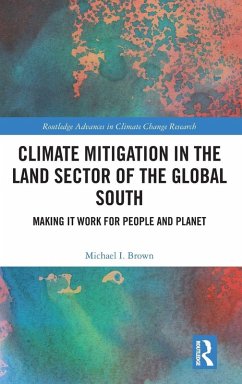This book challenges dominant, top-down approaches to climate mitigation in the land sector, arguing that without genuine negotiation, recognized land rights, and tailored capacity building for Indigenous Peoples and Local Communities (IPLCs), most solutions will inevitably fail or do harm. With civil society increasingly acting as a driving force for transparency and accountability around the world, the possibility of achieving feasible, impactful Nature-based Solutions (NbS) is growing. This vision echoes Brazil's call for a mutirão - a collective, bottom-up mobilization being championed at COP30 in Belém. Drawing on decades of fieldwork and critical analysis, Michael Brown reveals why prevailing strategies - from REDD+ to other NbS - remain implausible and risk compounding poverty and marginalization in the Global South. Instead, Brown proposes a paradigm shift, elevating a governance innovation: Negotiated Governance Platforms (NGPs) that bring IPLCs, governments, and climate financiers together as mutually interested partners. Through a rich set of case studies that include successes and failures, he demonstrates how social license, tenure security, and robust capacity building are essential for achieving climate action that will be sustainable because it works for key actors at multiple levels. Rejecting technocratic quick fixes, this book offers a pragmatic blueprint for moving beyond rhetoric to operational reality, even in contexts characterized by corruption or weak governance. It is essential reading for students, scholars, and practitioners in climate change, natural resource management, conservation, and green economics who seek grounded, actionable strategies that benefit both people and planet.
Bitte wählen Sie Ihr Anliegen aus.
Rechnungen
Retourenschein anfordern
Bestellstatus
Storno








